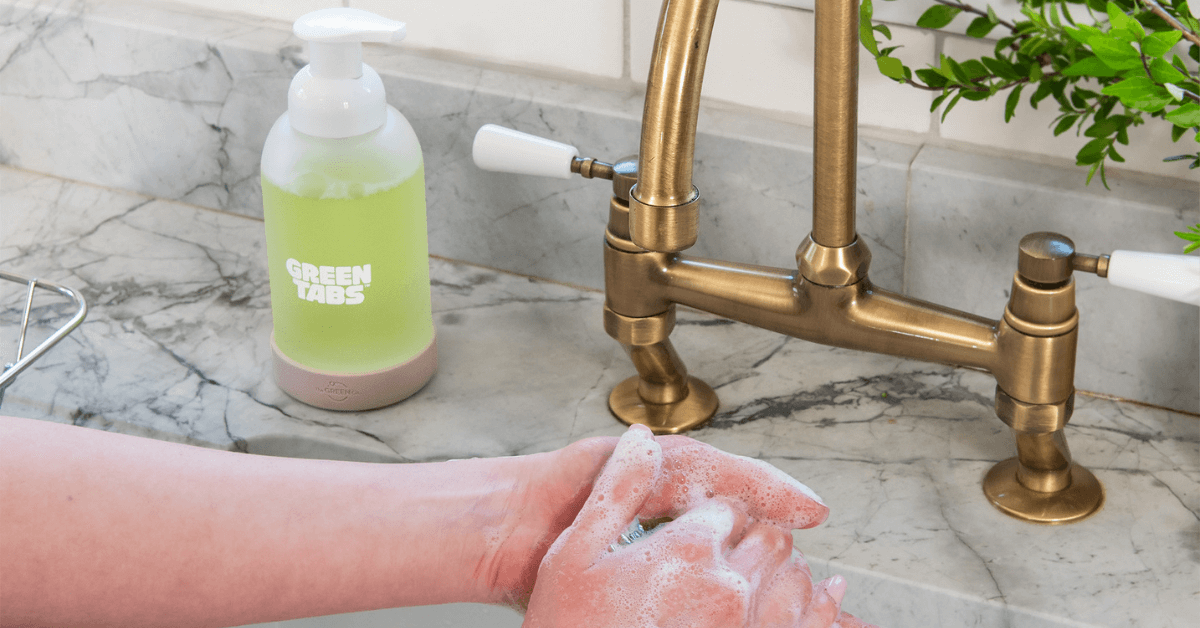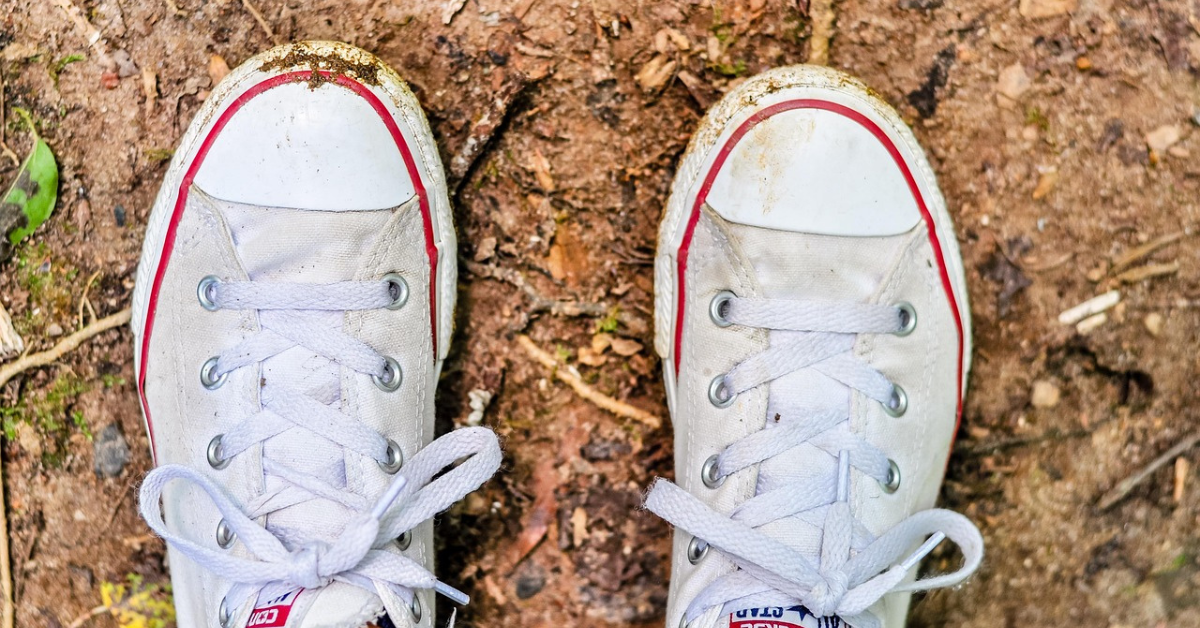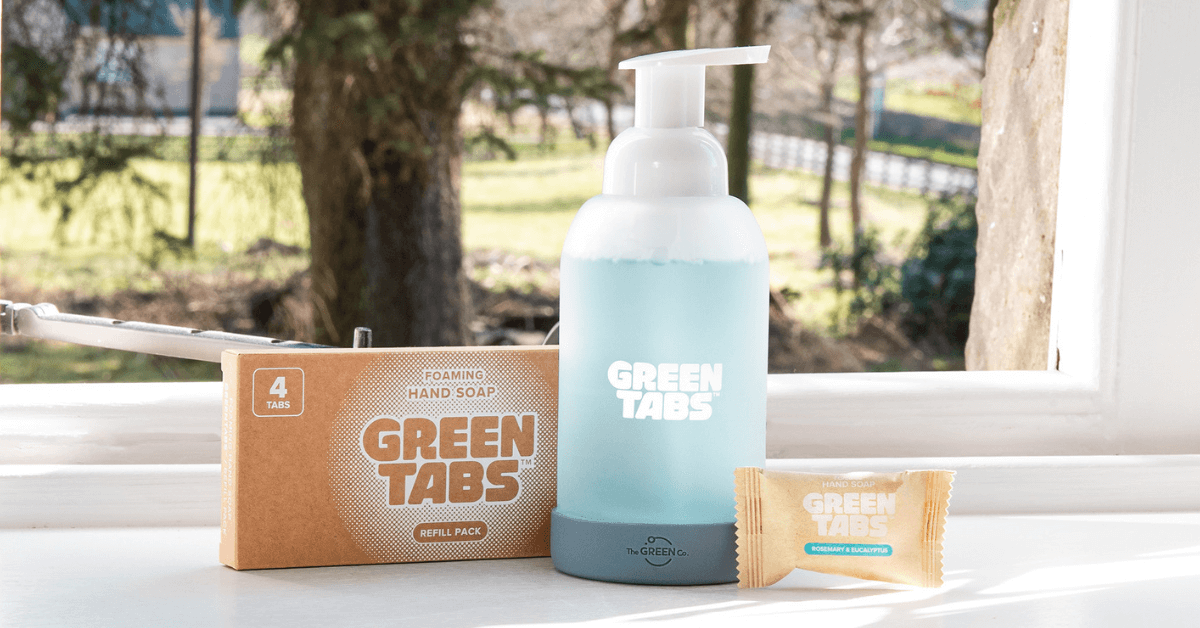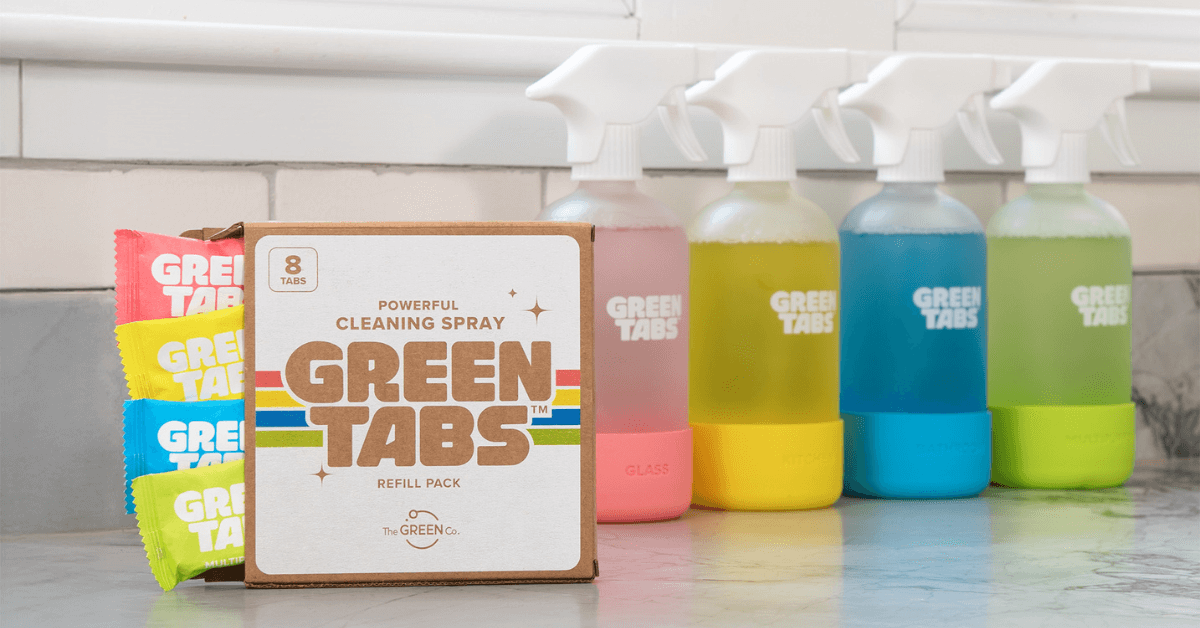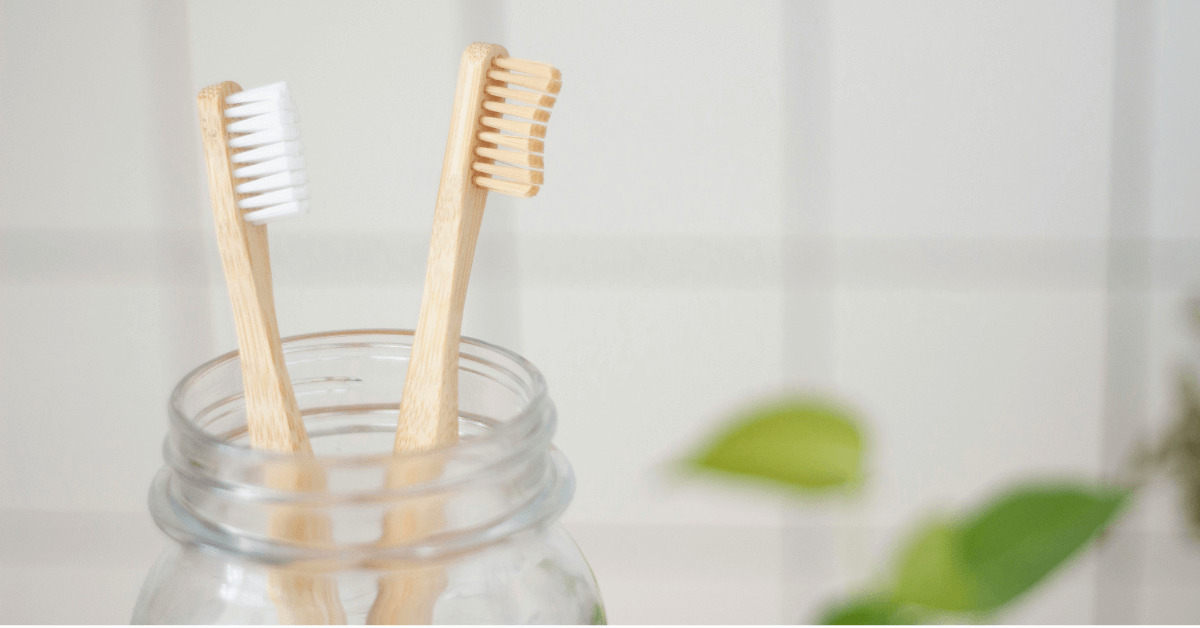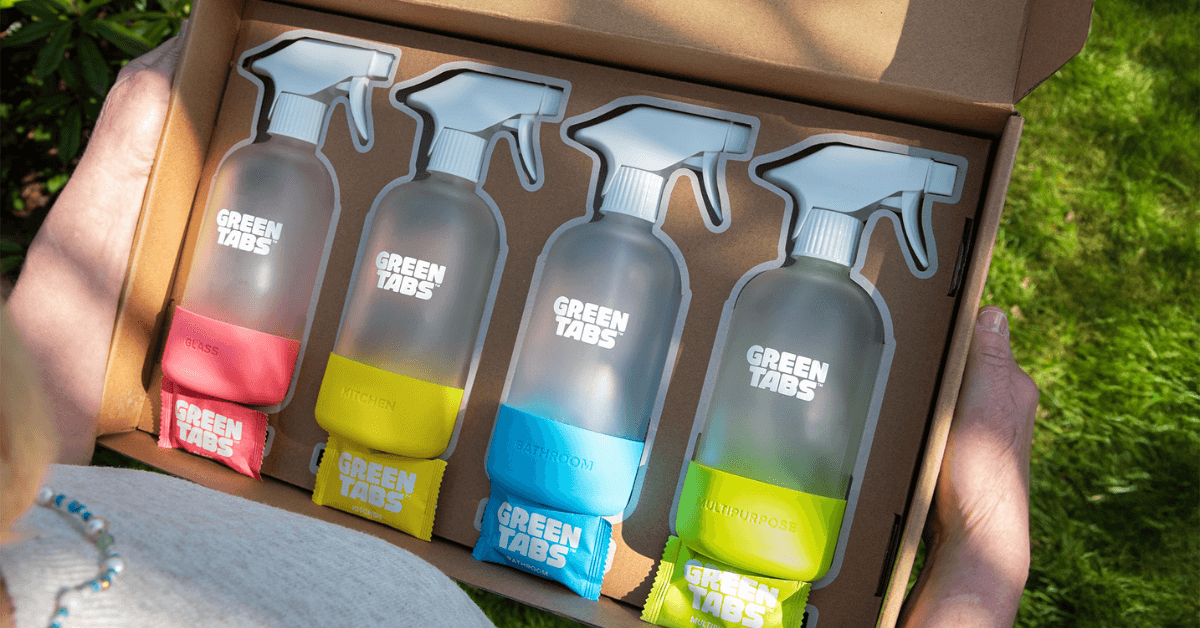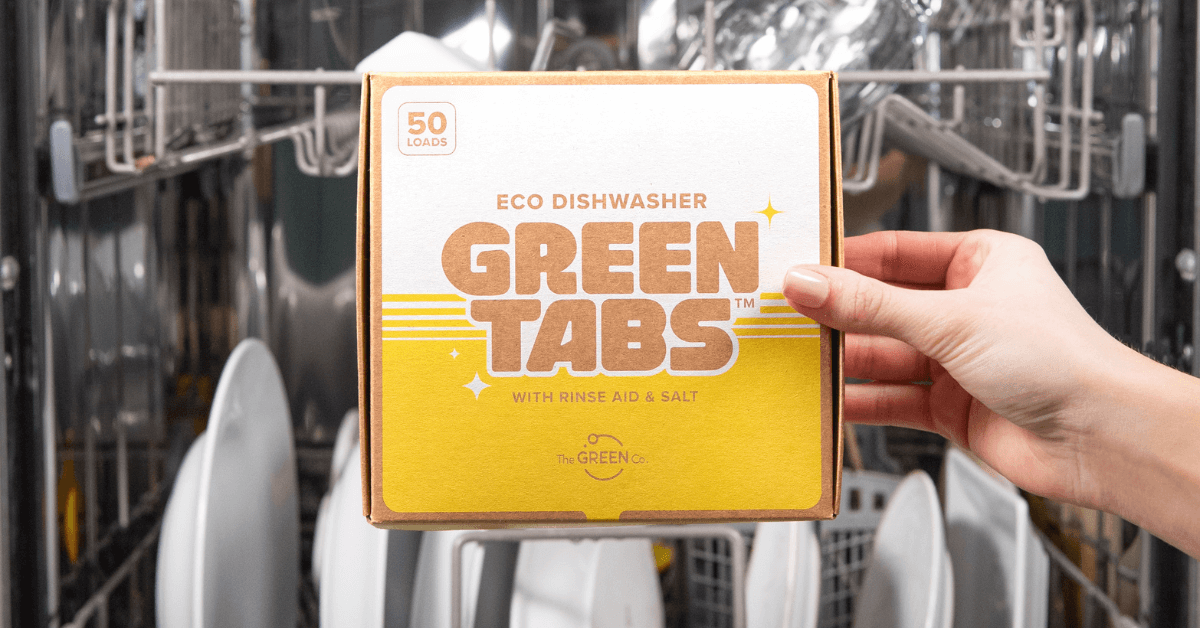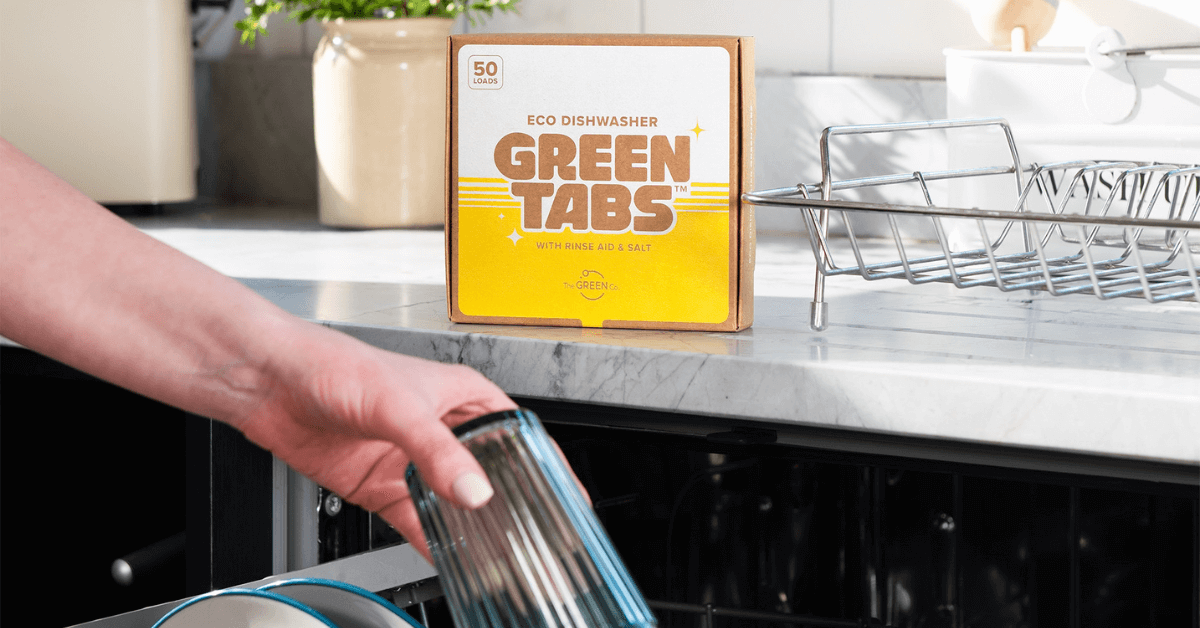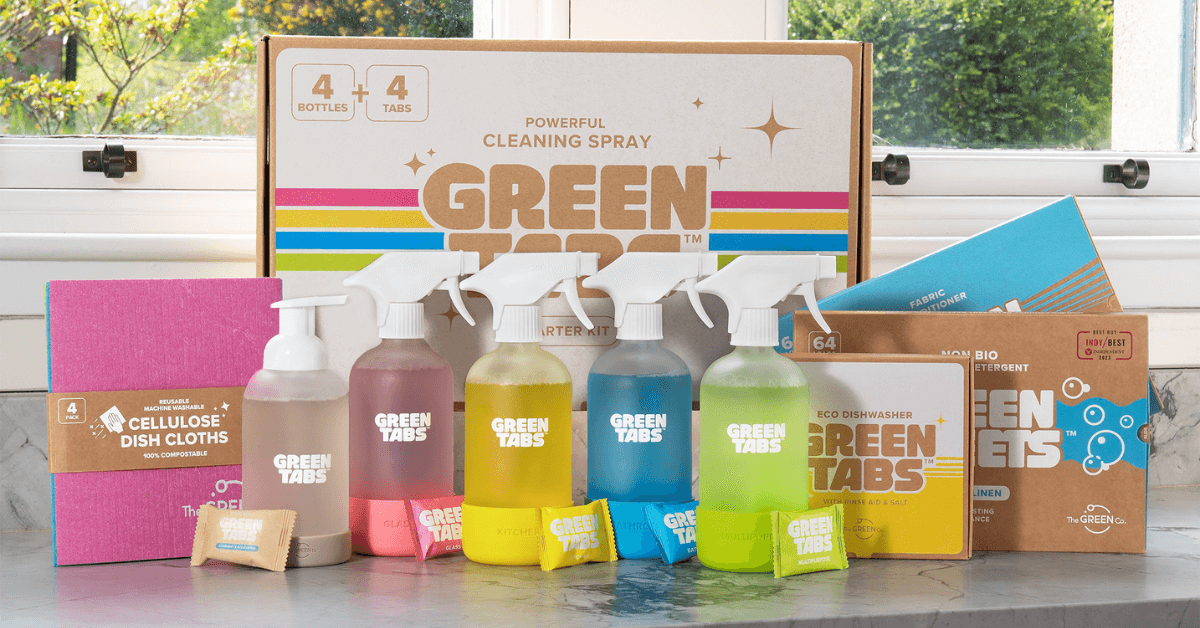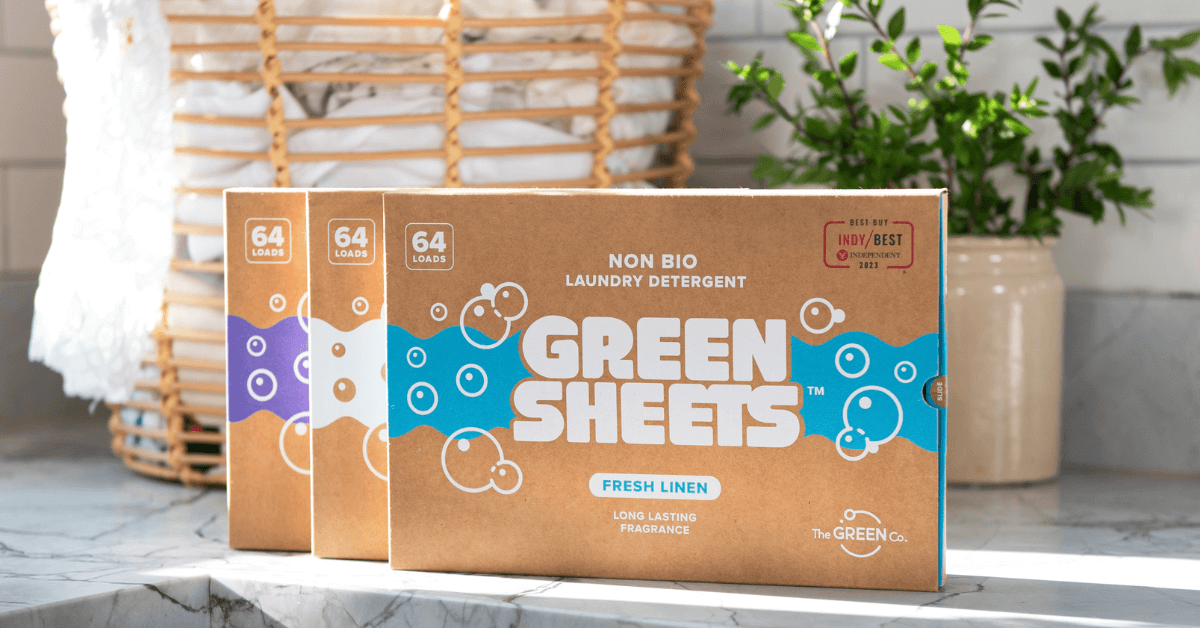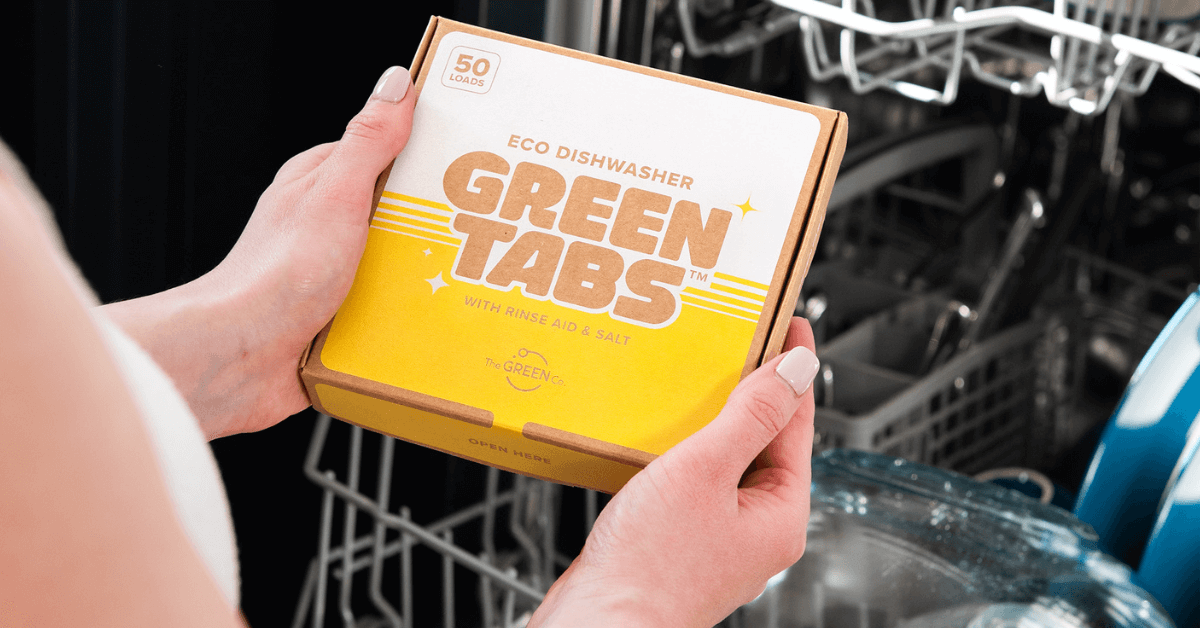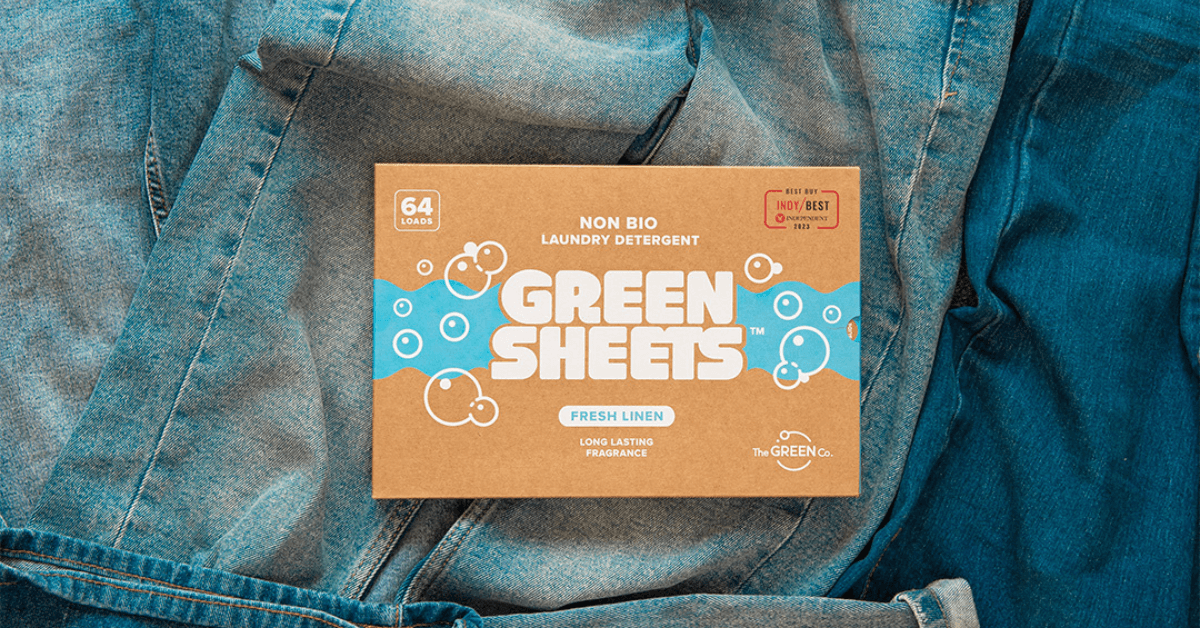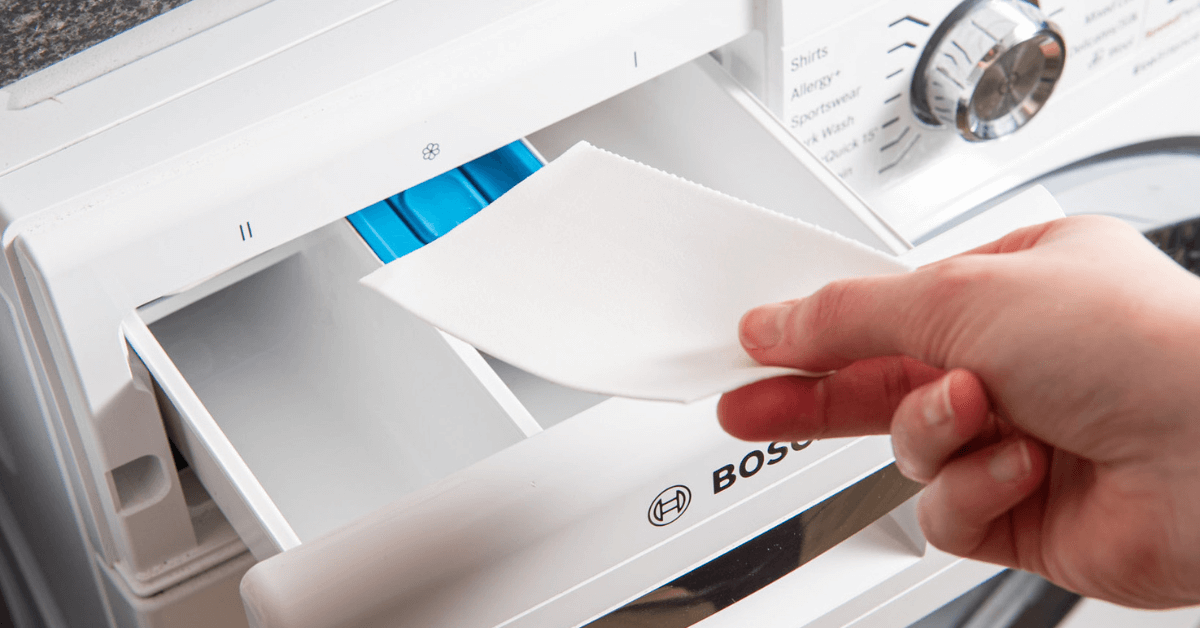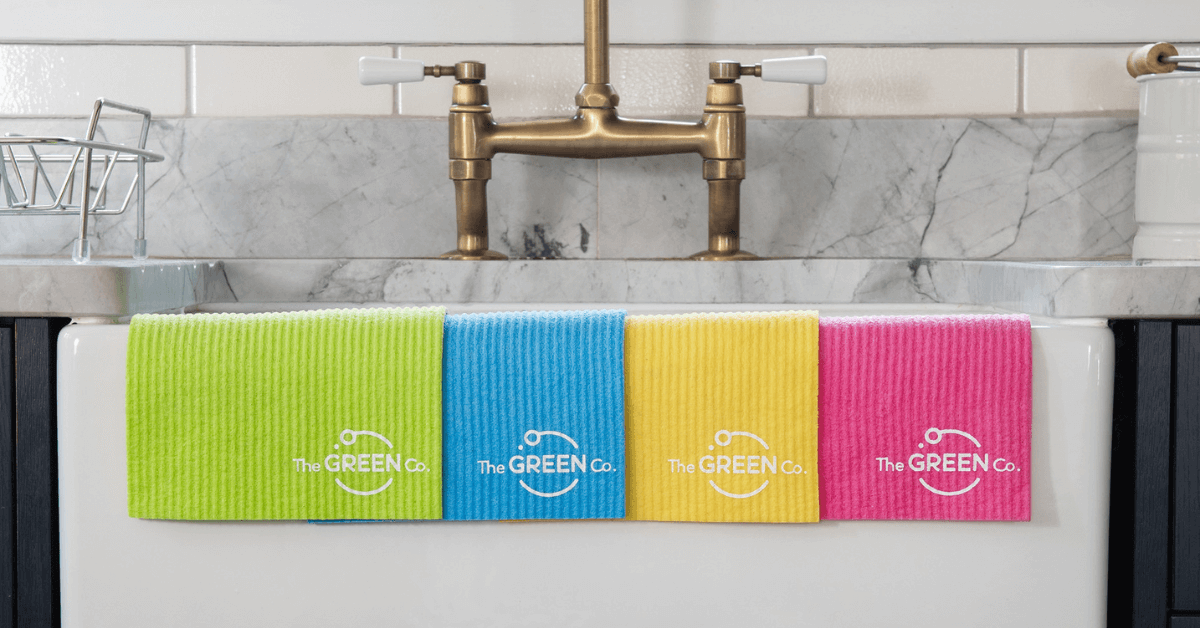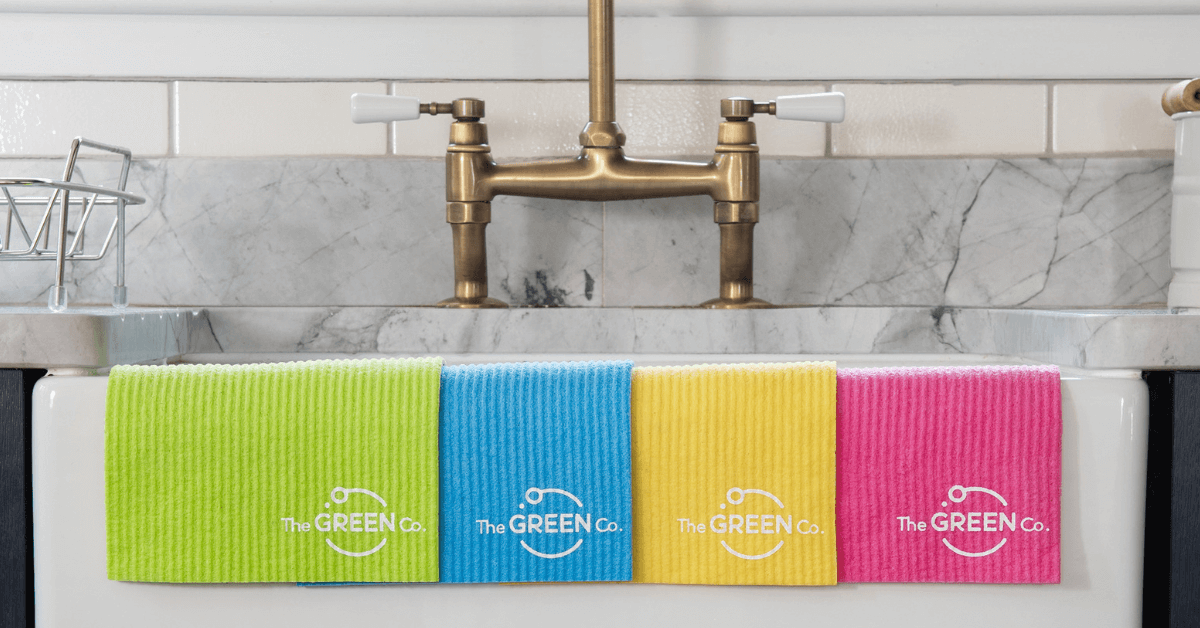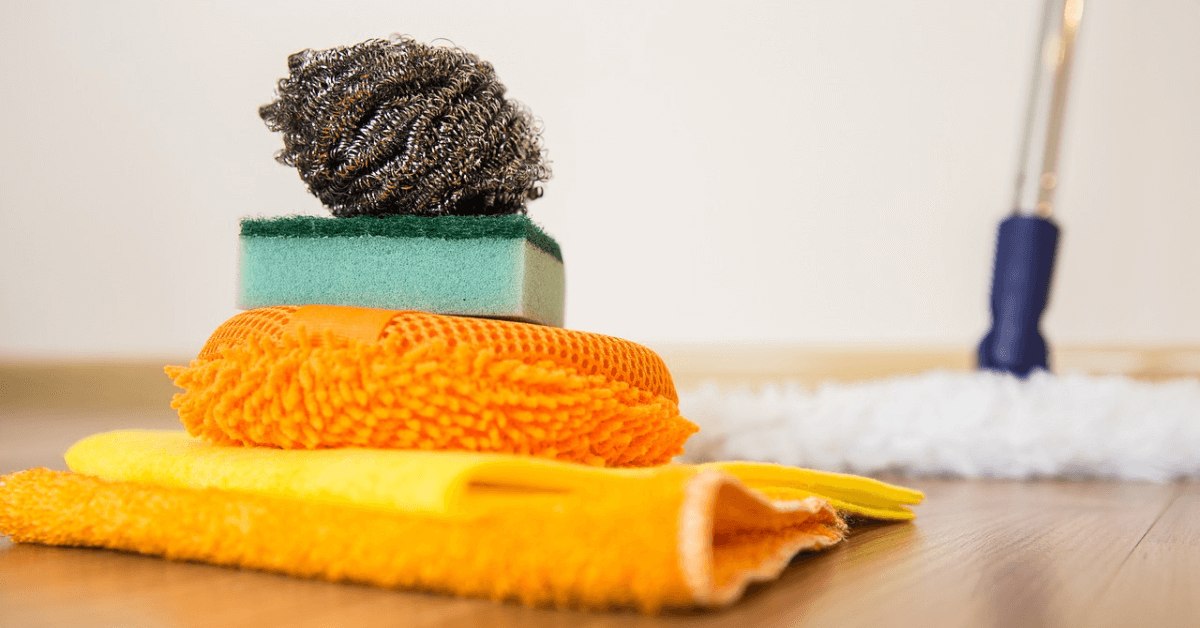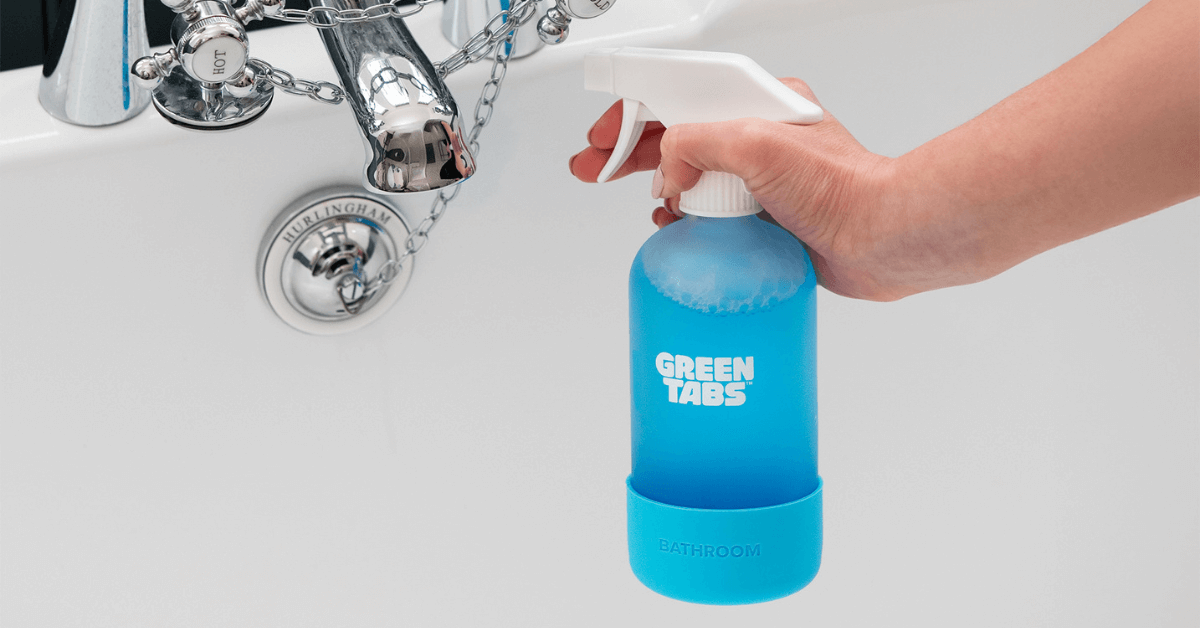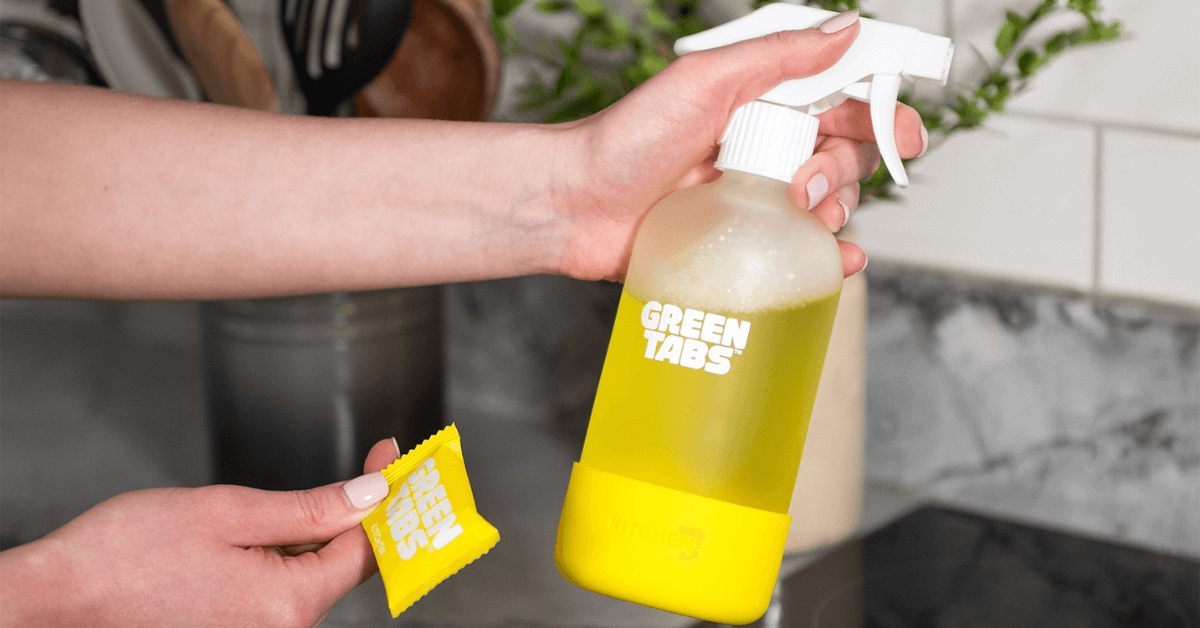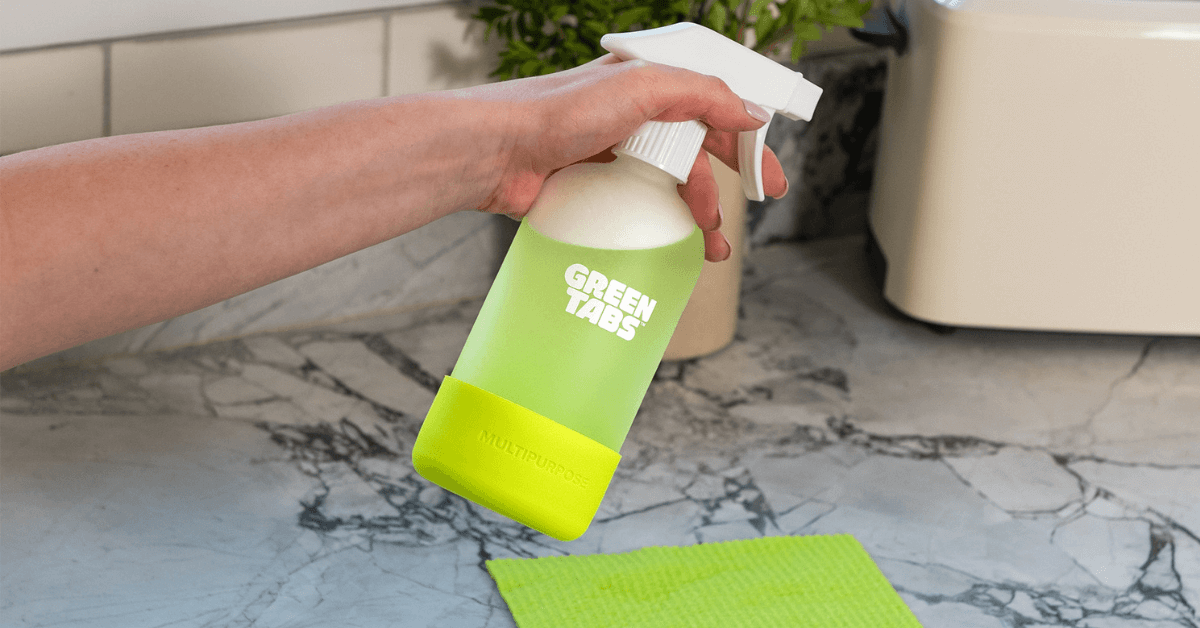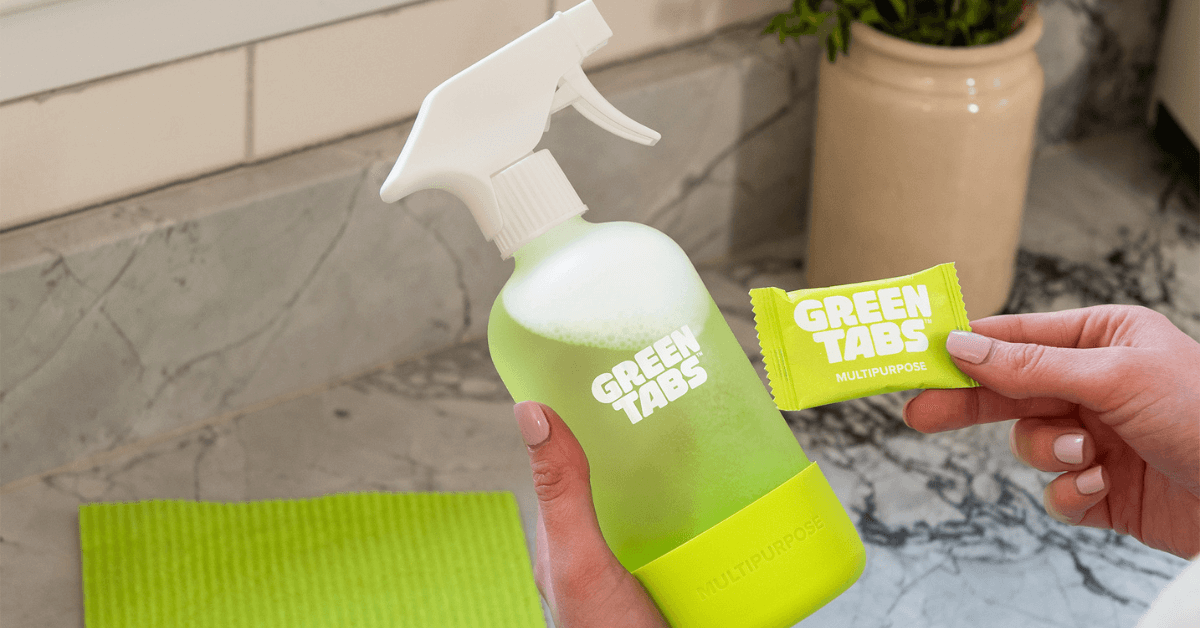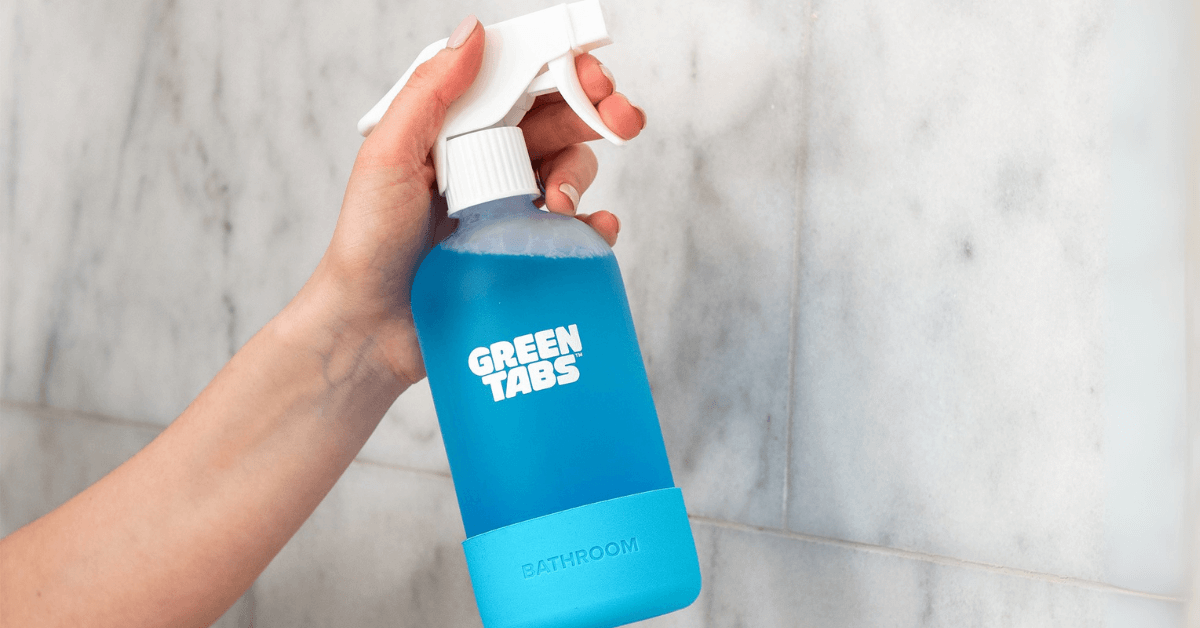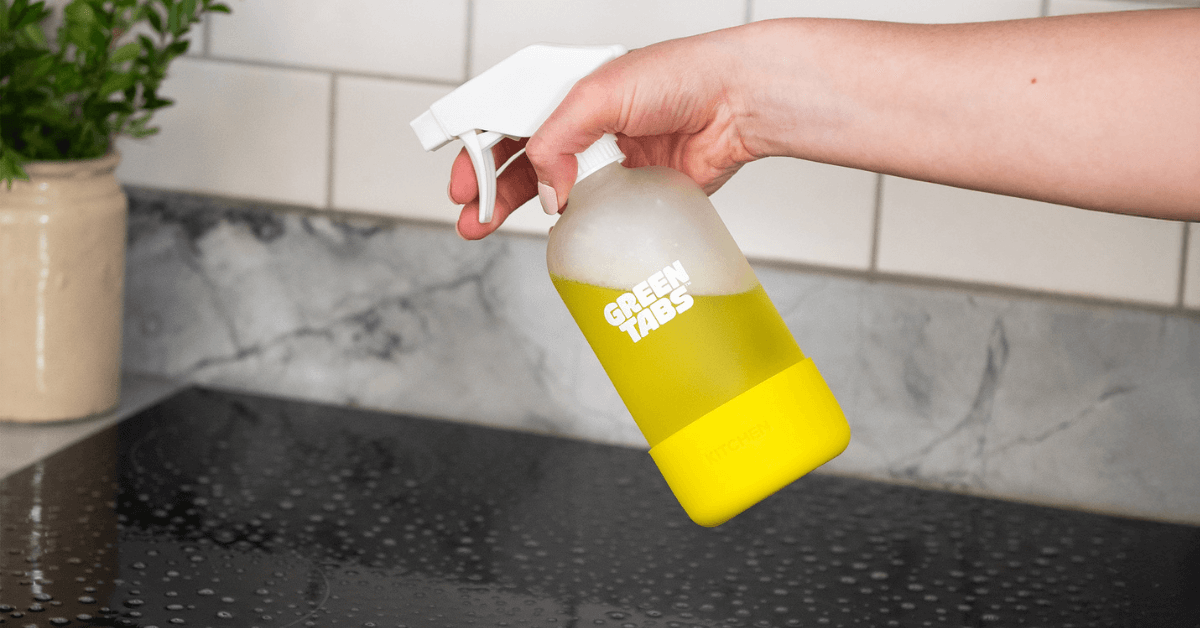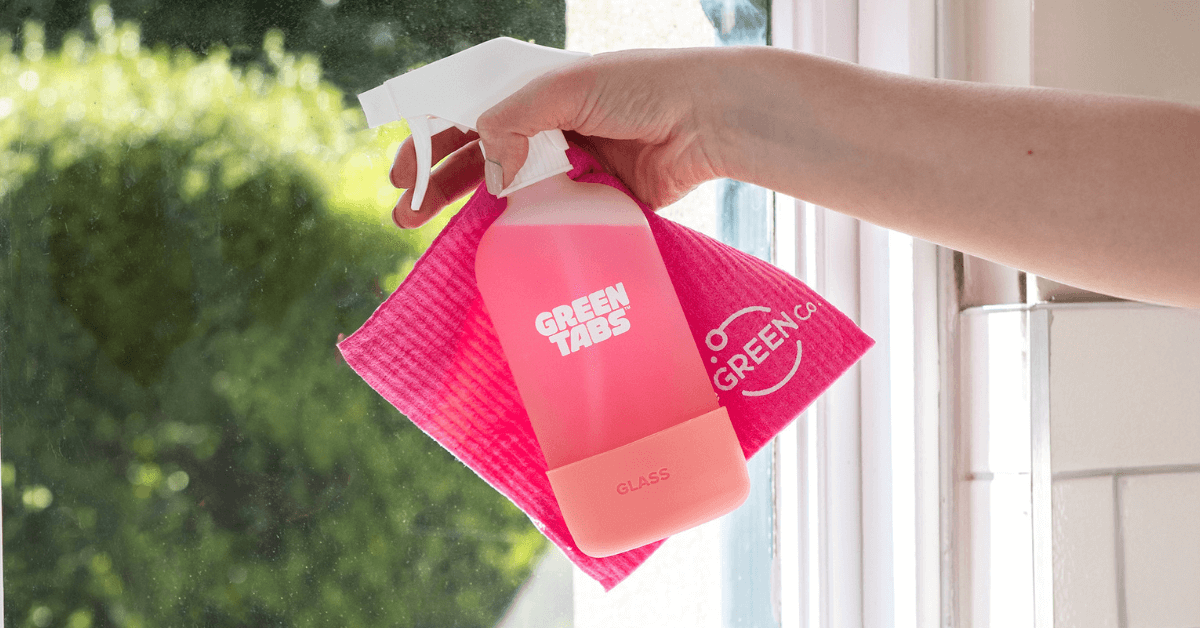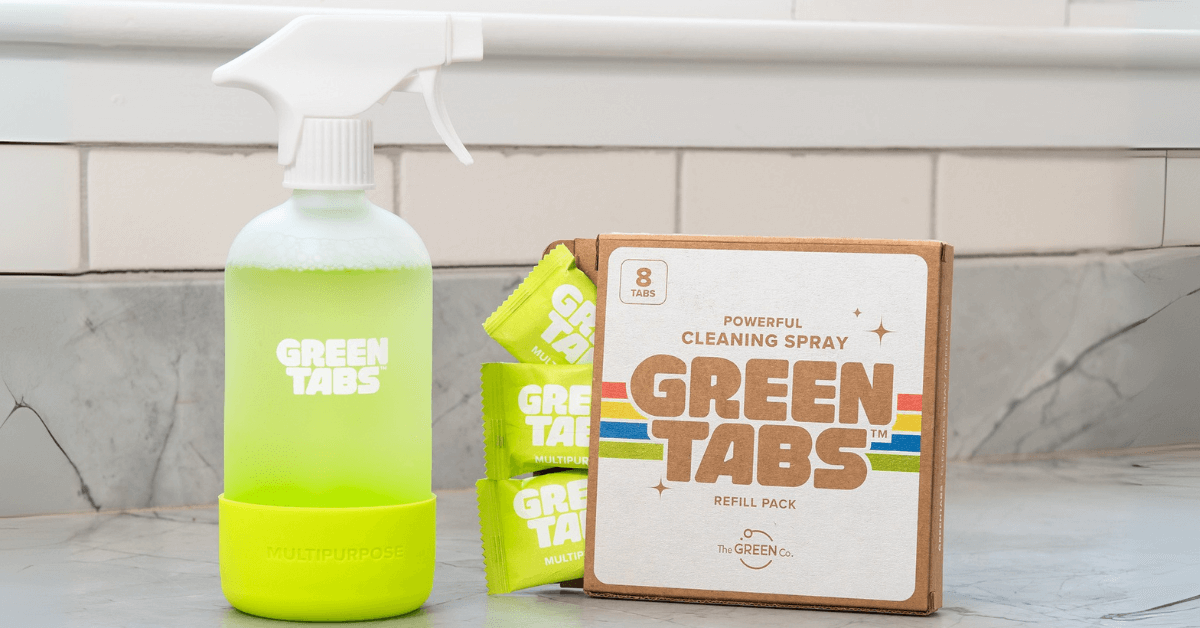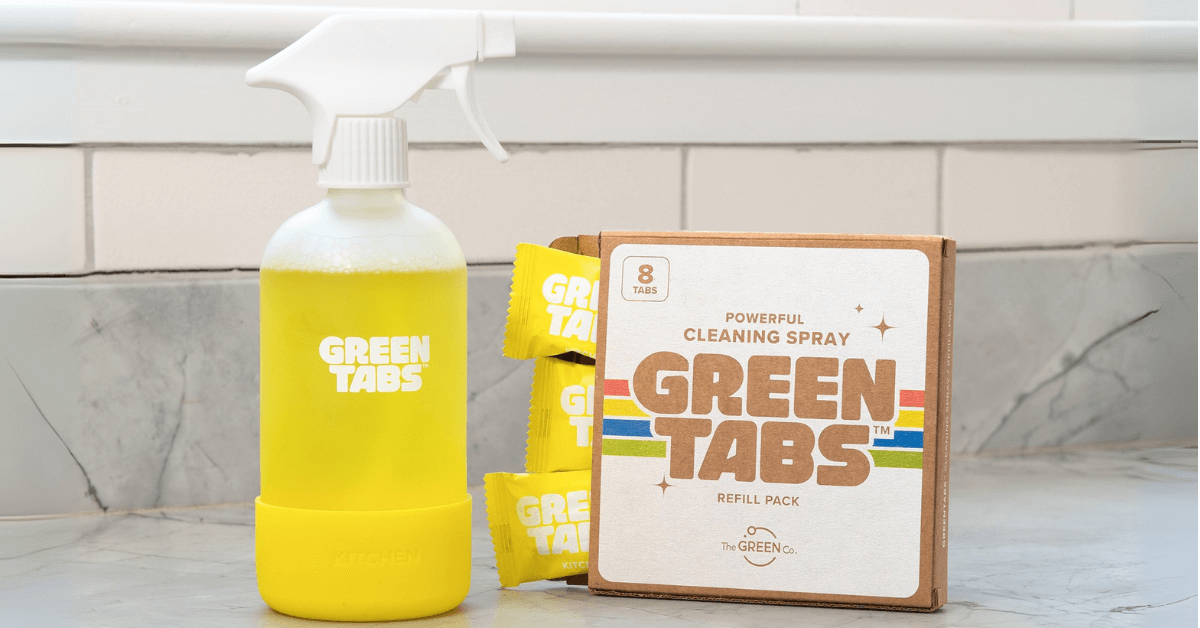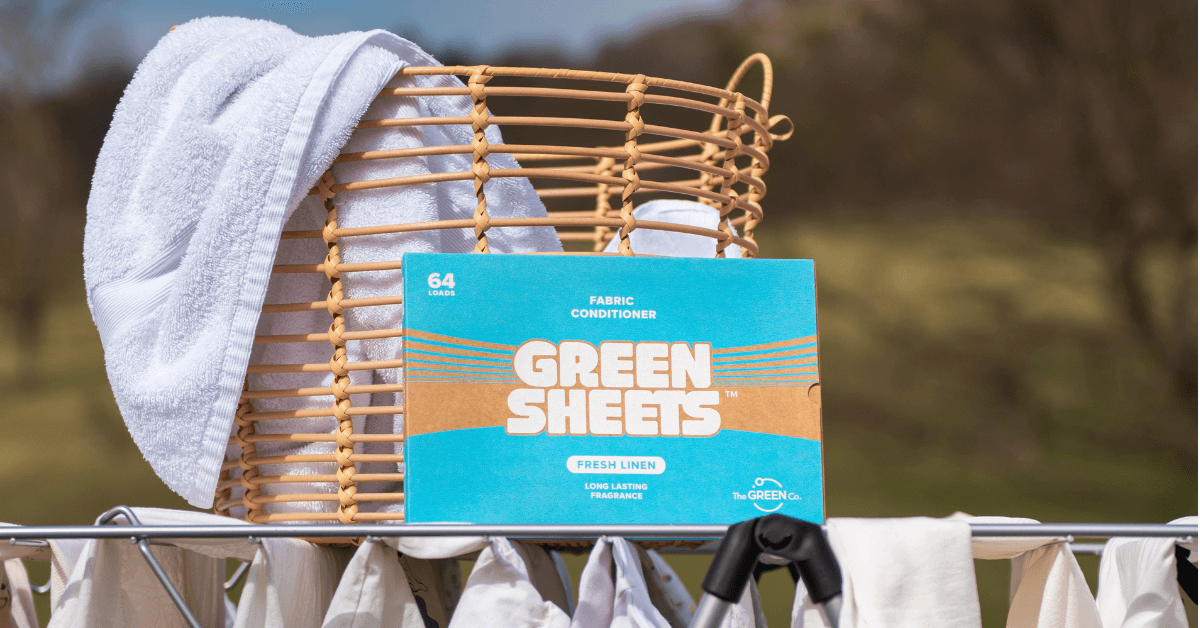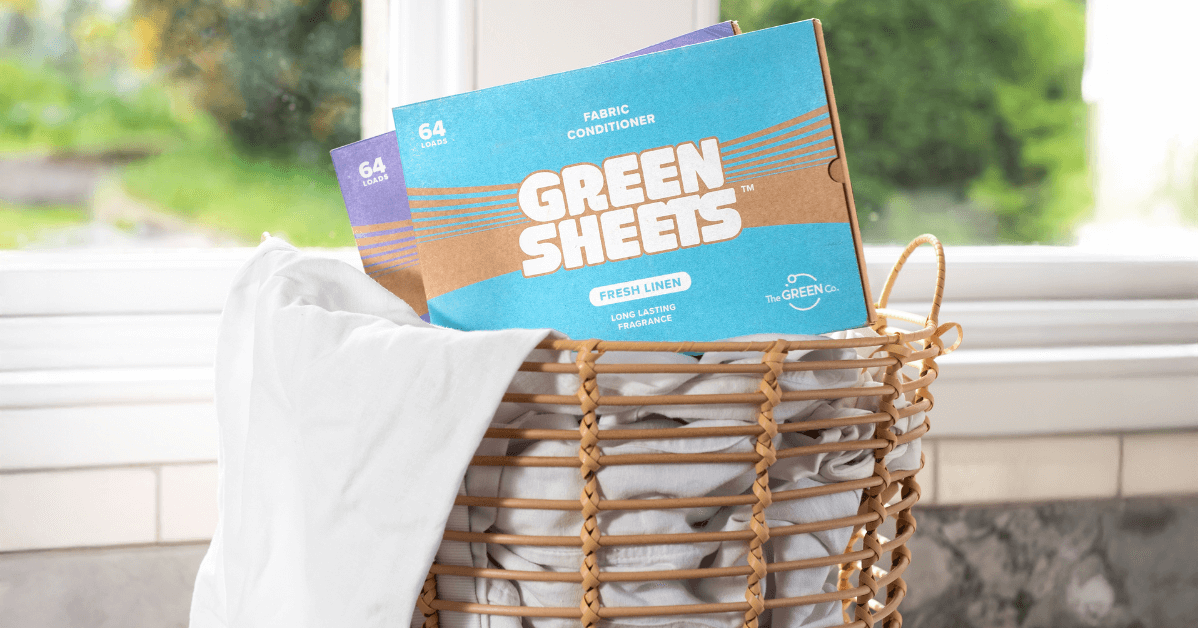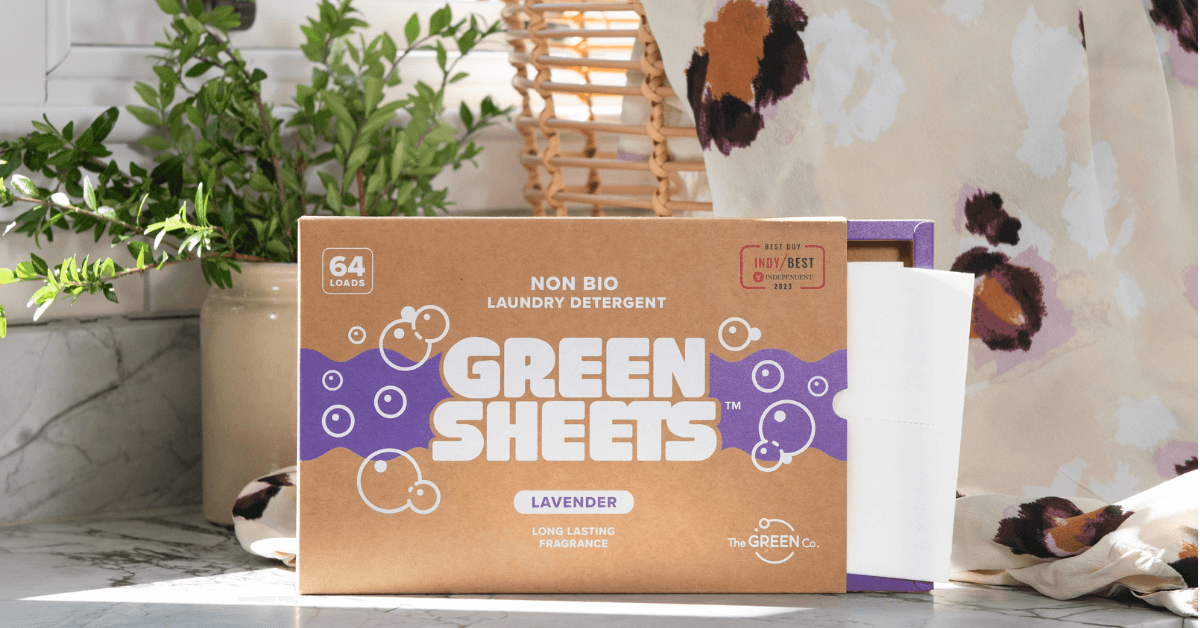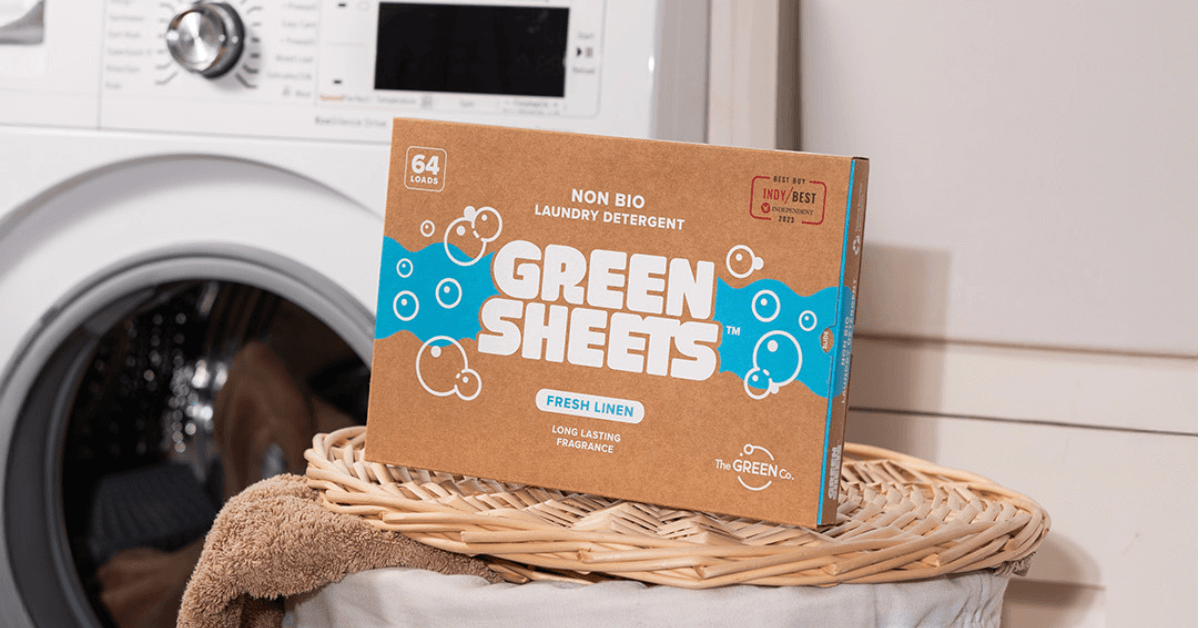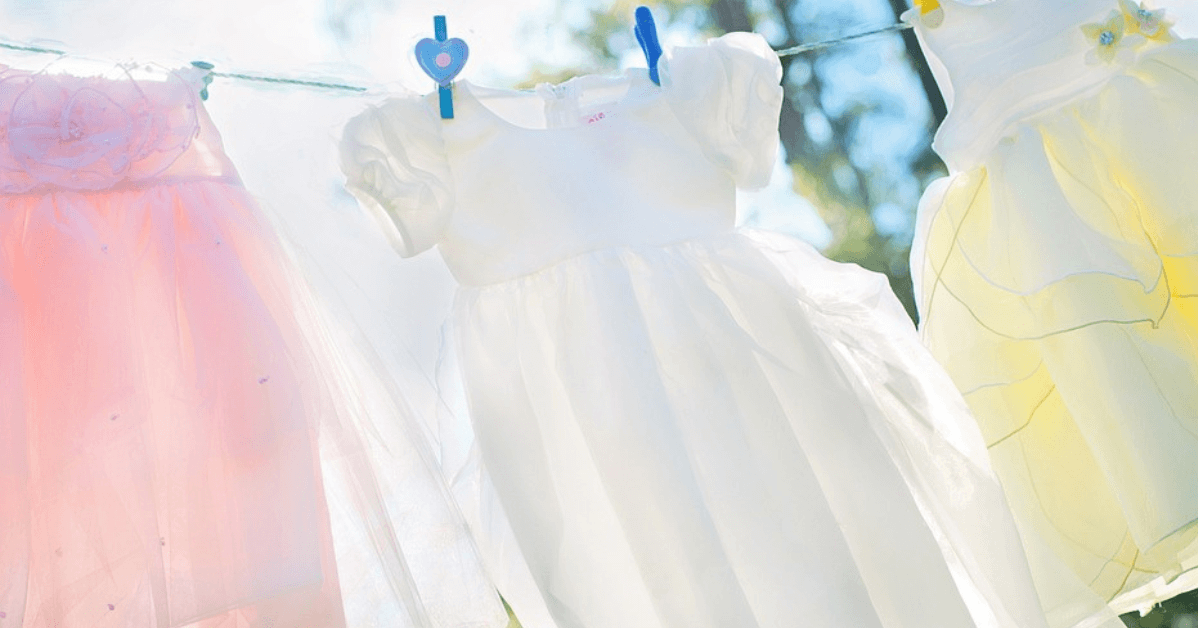What is the Best Dish Detergent for Dishwashers?

Not all dishwasher detergents are created equal. Whether you're after the best eco-friendly dishwasher tablets or a non-toxic detergent that works in hard water, the right choice does more than clean your dishes. It protects your appliance, saves time, and helps the planet. This article will help you find the right eco dishwasher tablets for your household.
👉Try Eco Dishwasher GreenTabs™ today
Why Choosing the Right Detergent Matters
In the UK, the average UK household uses approximately 260 litres of water per day. A significant share of this usage comes from household chores, including dishwashing.
Selecting the appropriate dishwasher detergent holds importance beyond ensuring cleanliness. The right choice plays a role in water conservation, energy efficiency and bills. Not forgetting the durability and longevity of your kitchen appliances.
Finding the right detergent for your home can save you time and stress too. Let’s look at how you can do this in more detail.
What to Look For in a Dishwasher Detergent
We recognise the pivotal role that an eco-friendly dishwasher solution plays. Here's a brief overview of the 7 areas we'll explore in this comprehensive guide:
- Hard and Soft Water: Understand the nuances of dishwasher detergents in soft and hard water conditions.
- Rust Prevention: We will explore ways to protect your utensils from rust and look at what causes it.
- Residue-Free Solutions: Identify detergents that leave your dishes spotless without any unwanted residue.
- Eco-Friendly Choices: Dive into the world of green, eco-friendly, and plastic-free options.
- Small Dishwasher Considerations: How to tailor your detergent choice to the constraints of a smaller dishwasher.
- Glassware Concerns: Delicate glassware requires special attention – discover the best detergent for the job.
- What to Avoid: A cautionary exploration of detergents containing harmful chemicals and formulations.
Best Dishwash Detergent for Dishwashers in Hard & Soft Water Areas
Water hardness is a critical factor in choosing the best dishwasher detergent. Soft water requires a different detergent formulation compared to hard water. Understanding this distinction is pivotal for achieving optimal cleaning results.
Soft Water
Soft water contains low levels of minerals, particularly calcium and magnesium. In soft water, traditional detergents may create excessive suds. This can result in less effective cleaning. Specialised formulations for soft water have fewer water-softening agents, preventing over-sudsing.
These specialised detergents break down grease and grime without leaving a soapy residue. Resulting in spotless and streak-free dishes. They also reduces the risk of detergent buildup in your dishwasher.
Hard Water
Hard water is rich in calcium and magnesium. These minerals can interfere with traditional detergent effectiveness. This is what causes spots and film on dishes.
Detergents tailored for hard water incorporate enhanced water-softening agents and powerful cleaning agents. They combat mineral deposits, ensuring dishes emerge spotless.
The best formulations are adept at handling the challenges posed by hard water. They offer an effective solution for households in hard water regions.
Why Dishwasher Tabs Excel in Both Scenarios
Eco Dishwasher Tabs present a balanced formula that tackles challenges posed by both water types.
They contain precise amounts of water-softening agents and powerful cleaning agents. This ensures optimal performance regardless of the water's mineral content.
This adaptability makes eco dishwasher tabs versatile and reliable. They always deliver excellent cleaning results and sparkling dishes in any water condition.
Best Plastic-Free Dishwasher Detergent

In an era prioritising environmental consciousness, your dishwasher detergent should align with sustainability. Plastic tabs and pods dominate, but eco-friendly alternatives are gaining traction.
Let's explore the benefits of dishwasher tabs. Find out what sets them apart from plastic options below.
The Environmental Impact of Eco Dishwasher Tabs
- Biodegradable Materials: Eco dishwasher tabs are often made from biodegradable materials. They break down naturally over time, reducing their impact on the environment.
- Reduced Plastic Waste: Eco-friendly dishwasher tabs have minimal or no plastic packaging.
- Plant-Based Ingredients: Many dishwasher tabs use plant-based ingredients in their composition. Reducing reliance on fossil fuels and promoting a more sustainable sourcing approach.
- Lower Carbon Footprint: Manufacturing dishwasher tabs results in a lower carbon footprint than traditional plastic options. This is because of the materials used, production methods and sustainability practices.
- Minimal Chemical Impact: Eco-friendly dishwasher tabs use fewer harsh chemicals such as phosphates. This makes them better for the environment. It also reduces the potential for chemical residues on dishes and water systems.
The Plastic-Free Elements To Look For
Cellulose or PVOH (Polyvinyl Alcohol): Many environmentally friendly dishwasher tabs use cellulose or PVOH as a base material. Cellulose comes from plant sources like wood pulp. PVOH is a water-soluble, biodegradable synthetic polymer.
Natural Cleaning Agents: Eco-friendly dishwasher tabs often incorporate plant-based cleaning agents. Such as enzymes derived from natural sources. These enzymes effectively break down food residues and grease. Reducing reliance on harsh chemicals.
Mineral Salts: Some formulations include mineral salts. Salts contribute to water softening. This helps to enhance the cleaning efficiency of the eco dishwasher tabs. These salts are typically sourced from environmentally sustainable mines.
Vegetable Glycerin: Some eco dishwasher tabs use vegetable glycerin, derived from plant oils, to maintain moisture. This ingredient can contribute to their overall biodegradability.
Best Dishwasher Detergent for Small Dishwashers
Small dishwashers are a practical solution for compact kitchens, but finding the right detergent can be a challenge. Enter dishwasher sheets – a game-changer for those with limited space.
- Space-Efficient Storage: Tabs come in flat and compact packaging to make them easy to store in kitchens with limited space. The flat design eliminates the need for bulky containers and maximising storage efficiency. Very convenient in smaller kitchen settings.
- Reduced Packaging Waste: Traditional detergent packaging often contributes to excess waste. Especially for smaller households with lighter dishwashing needs. Dishwasher tabs, being adaptable and often packaged with minimal material, contribute to reduced packaging waste.
- Cost-Effective for Small Households: Dishwasher tabs offer a cost-effective solution for smaller households. Users can control the detergent usage, avoiding overuse and unnecessary expenses.
How Tabs Help You Avoid Common Cleaning Issues

Dishwasher tabs aren't just about cleaning. They're about resolving common issues that plague dishwashing experiences.
Preventing Rust with Natural Ingredients
One common concern is the appearance of rust on utensils. The best solution for this is detergent containing natural ingredients.
Choose dishwasher detergents with a gentle formula, minimising abrasive actions that can contribute to rust.
Look for products that neutralise residual minerals, especially in hard water regions. Mineral deposits can accelerate rust formation.
By selecting dishwasher detergents with these features, you can effectively reduce the risk of rust, ensuring the longevity and pristine condition of your kitchen utensils and cookware.
How Natural Tabs Can Help
Natural Dishwasher tabs contribute to rust prevention in kitchenware. The natural ingredients form a protective shield.
These tabs contain corrosion-inhibiting agents, such as citric acid. This creates a barrier against the corrosive effects of water and detergents. In regions with hard water, they neutralise residual minerals that can contribute to rust formation.
The use of gentle, plant-based cleaning agents minimises the risk of abrasive cleaning. Preserving the integrity of metal surfaces.
Eco-friendly dishwasher tabs with biodegradable components reduce the use of harsh chemicals, aligning with the goal of kitchenware longevity.
The controlled and consistent cleaning provided by these tabs ensures optimal cleaning conditions without subjecting utensils to excessive abrasion or harsh chemicals. Catering to the needs of users prioritising the maintenance of their kitchenware.
Residue-Free, Spotless Dishes
Traditional dishwasher detergents often leave unwanted spots and film due to their chemical composition, especially in hard water conditions where complete dissolution is a challenge.
To avoid residue on dishes, opt for a high-quality dishwasher detergent with key features. Look for phosphate-free formulas, as phosphates contribute to residue buildup. Detergents with water softening agents are effective in preventing mineral deposits, crucial in hard water areas.
Why Dishwasher Tabs?
Gentle, natural ingredients ensure that dishwasher tabs leave no residue on your dishes. Say goodbye to the frustration of finding unwanted spots on your glassware or cutlery.
Dishwasher tabs mitigate this residue issue through a carefully designed formula that reduces the chemical load, enhancing dissolvability during the wash cycle. The tabs facilitate an effective rinsing process, ensuring the removal of any remaining detergent from glassware and cutlery.
Additionally, tabs incorporate natural water-softening agents, preventing mineral deposits that contribute to residue buildup.
By embracing these features, dishwasher tabs offer a reliable and efficient way to bid farewell to the annoyance of finding unwanted spots on freshly washed dishes, delivering consistently clean and spotless results.
Best Dishwasher Detergent for Glassware
Glassware requires special attention, and the choice of detergent is paramount. Delicate glass items often fall victim to residue and spots left by subpar detergents. Here's what you should look for in a detergent for glassware:
- Non-Abrasive Formula: The best detergents for glassware are non-abrasive to prevent scratching or clouding. They gently clean without compromising the integrity of the glass.
- No Harsh Chemicals: Detergents with minimal or no harsh chemicals are preferable. This helps avoid chemical residues on glass surfaces that can affect clarity and shine.
- Rinse Aid Compatibility: Some glass-specific detergents work well with rinse aids. Rinse aids enhance the drying process, minimising water spots and contributing to the overall brilliance of glassware.
- Water Softening Properties: In areas with hard water, detergents with water-softening properties are beneficial. They help prevent mineral deposits on glass, maintaining its pristine appearance.
- Eco-Friendly Options: Environmentally friendly detergents are a good choice. They often have biodegradable ingredients and are less likely to leave residues on glassware.
What Should You Avoid Using?
Not all dishwasher detergents are created equal. There are formulations that should be approached with caution. Our brief outline highlights detergents that may compromise your dishwashing experience, your health and the environment.
Chemicals to Avoid in Dishwasher Detergents
As household caregivers, it is imperative to be discerning about the chemicals present in dishwasher detergents to safeguard both family health and the environment.
Certain chemicals commonly found in these detergents pose risks that necessitate avoidance for a safer kitchen environment.
Firstly, phosphates, often used for their cleaning efficacy, contribute to water pollution and algae growth in aquatic ecosystems. Opting for phosphate-free detergents is vital to mitigate this environmental impact.
Phosphates, as discussed earlier, also contribute to residue build up. It’s best to avoid these when looking for the best option for your home.
Chlorine and its compounds, including chlorine bleach, release harmful fumes and contribute to air and water pollution. Choosing detergents without chlorine is essential for safer use.
Ammonia, known for releasing toxic fumes, should also be avoided, and detergents without ammonia should be selected for safer use.
Synthetic fragrances, which may contain undisclosed chemicals, raise transparency concerns, prompting the choice of detergents with clear labelling or fragrance-free options.
Nonylphenol Ethoxylates (NPEs), used as surfactants, exhibit environmental persistence, emphasising the importance of choosing detergents labelled NPE-free for a more eco-friendly option.
Prioritising detergents without these harmful chemicals is pivotal, fostering a safer kitchen environment, protecting family health, and contributing to environmental sustainability.
Reading labels diligently and opting for products with transparent ingredient information ensures informed decision-making in selecting safer dishwasher detergents.
FAQ
Q: What is the best eco-friendly dishwasher detergent in the UK?
A: Look for options that are plastic-free, biodegradable, and phosphate-free. Our Eco Dishwasher GreenTabs™ tick all these boxes, offering a natural and powerful clean.
Q: Can dishwasher detergent prevent rust?
A: Yes, natural formulas with citric acid and water-softening agents help reduce mineral deposits and protect against rust.
Q: Is there a non-toxic alternative to traditional dishwasher tablets?
A: Yes. Non-toxic tabs use plant-based ingredients and avoid harmful chemicals like phosphates, chlorine and synthetic fragrance.
Summarising The Best Dishwashing Detergent Options
In the search for the best dishwasher detergent, consider key factors for optimal performance.
First, evaluate its effectiveness in both soft and hard water conditions. Look for a detergent that prevents rust on utensils, leaves no residue, and caters to specific needs such as smaller dishwasher loads and delicate glassware.
Prioritise eco-friendly options, free from harmful chemicals. Check for compatibility with your lifestyle, offering convenience and time-saving benefits. Neutral fragrances may also be appealing.
Evaluating these criteria will guide you toward a detergent that aligns with your preferences and household requirements. Find out whether you can use a dishwasher without detergent here.
Why Eco Dishwasher GreenTabs™ Shine

Natural Dishwasher GreenTabs™ emerge as a standout choice due to their many benefits including compact nature and exceptional efficiency.
With a minimal environmental footprint, these tabs dissolve easily, leaving no plastic waste behind. Composed of eco-friendly, biodegradable materials, they contribute to sustainable living.
GreenTabs™ adapt seamlessly to various water conditions, offering a versatile and universally effective solution. Their innovative design caters to small dishwasher loads and delicate glassware, providing a comprehensive cleaning experience.
Embrace the simplicity of eco dishwasher tabs for a cleaner, greener, and more efficient dishwashing routine.
Ready To Switch To A Better Dishwasher Detergent?
Dishwasher GreenTabs™ are plastic-free, biodegradable, and made with naturally powerful ingredients. They’re tough on food, gentle on glass, and work in all water types.






















